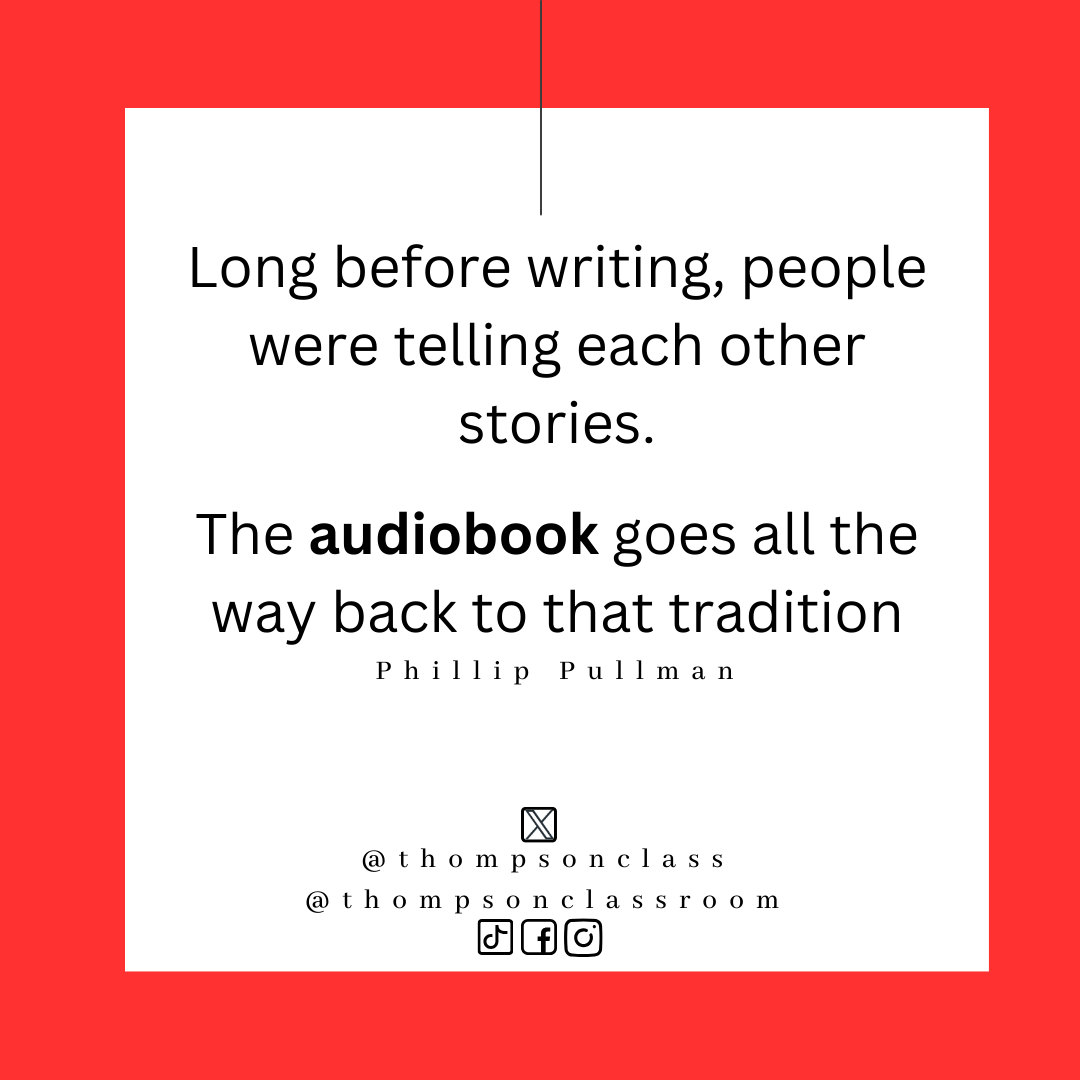The Role of Audiobooks

On Mondays, I share a different ed tech quote on our Thompson Classroom social media pages for our staff to consider.

February is upon us and schools across the country are busy with “I Love To Read” activities. With a literacy focus for the month, our Tech Tips will follow suit as we explore the many ways in which digital tools can be a part of your overall literacy toolkit. If you missed this month’s ICT Newsletter, I recommend you check back and see some examples of how our Tech Kits can support literacy development from K-12.
One of these digital tools is audiobooks. To introduce yourself to the debate surrounding audiobooks, and their role in literacy development, check out this video from Life Lessons on YouTube (embedded below):
Audiobooks can play a significant role in literacy development by providing an alternative and complementary approach to traditional reading. Some ways in which they can support literacy include:
- Accessibility and Inclusivity: Audiobooks make literature accessible to individuals with visual impairments or learning disabilities, promoting inclusivity in literacy development.
- Multisensory Experience: Listening to audiobooks engages the auditory senses, offering a multisensory experience that complements the visual aspect of reading. This can enhance comprehension and retention for certain individuals.
- Vocabulary and Language Development: Audiobooks expose listeners to diverse vocabulary, sentence structures, and pronunciation, contributing to language development and enriching one’s understanding of linguistic nuances.
- Fluency and Pronunciation: By hearing skilled narrators, listeners can develop better fluency, intonation, and pronunciation. This is particularly beneficial for language learners or those working on improving their oral communication skills.
- Encouraging a Love for Stories: Audiobooks can captivate listeners and instill a love for stories, fostering a positive attitude towards literature. This emotional connection with storytelling can encourage a lifelong passion for reading.
- Promoting Independent Reading: Audiobooks enable individuals to enjoy books while engaging in other activities, such as commuting, exercising, or doing household chores. This flexibility promotes independent reading and makes it easier for people to incorporate literature into their busy lives.
- Support for Struggling Readers: Audiobooks can provide support for struggling readers by offering an audio reinforcement of the text. This can help bridge gaps in understanding and make challenging material more accessible.
- Enhancing Comprehension: Listening to audiobooks can enhance comprehension skills by modeling proper phrasing, pacing, and expression. This auditory reinforcement can contribute to a deeper understanding of the content.
- Cultural and Diverse Representation: Audiobooks often feature narrators who bring diverse characters to life, providing a more immersive and authentic experience. This exposure contributes to cultural awareness and understanding.
Do you listen to audiobooks?
If so, what is your avenue to access them?
Stay tuned for tomorrow’s post which will provide a tutorial on how to access audiobooks within MVSD.